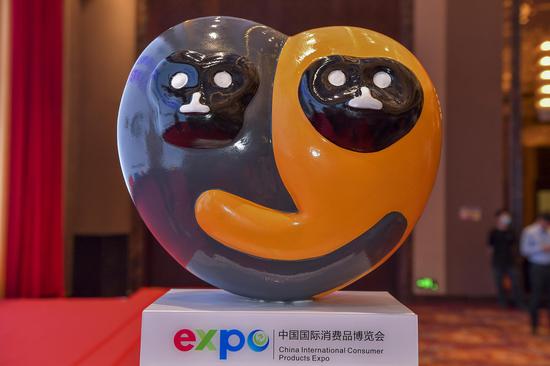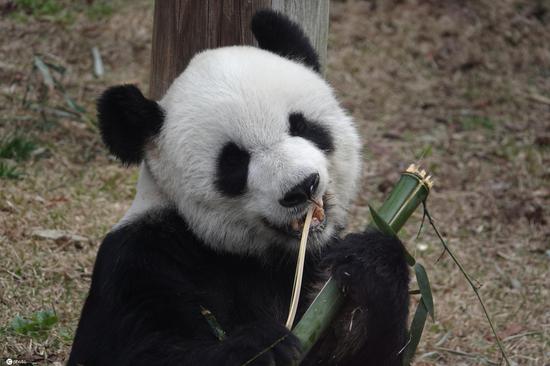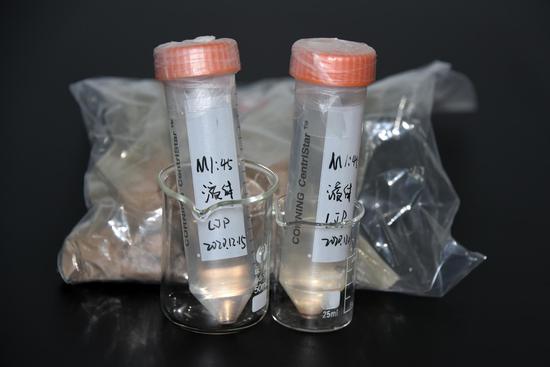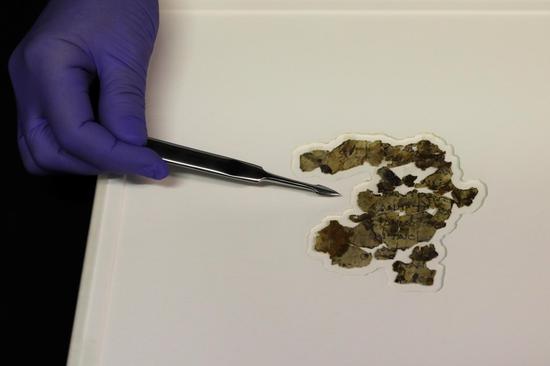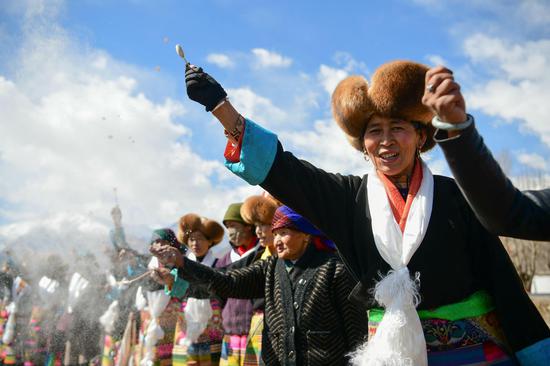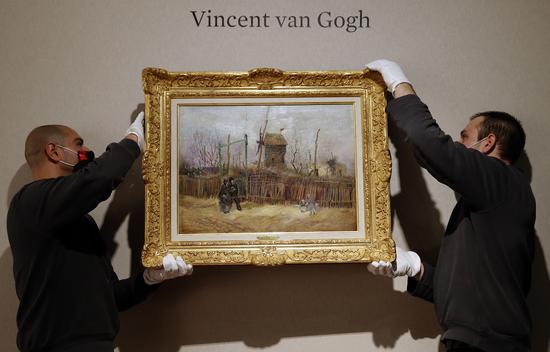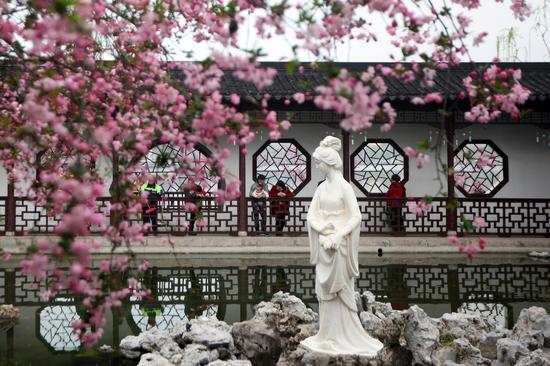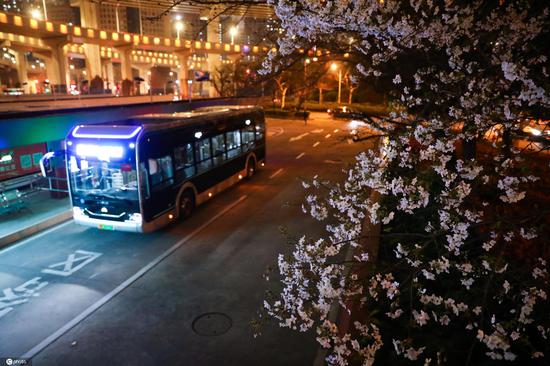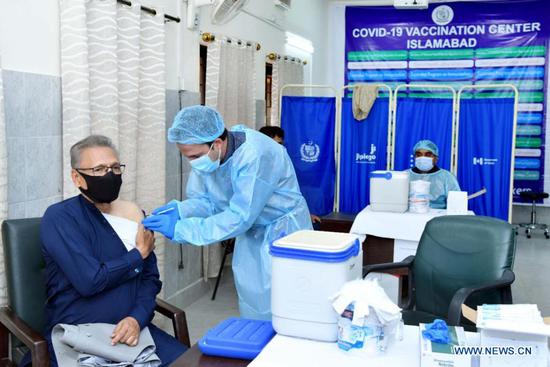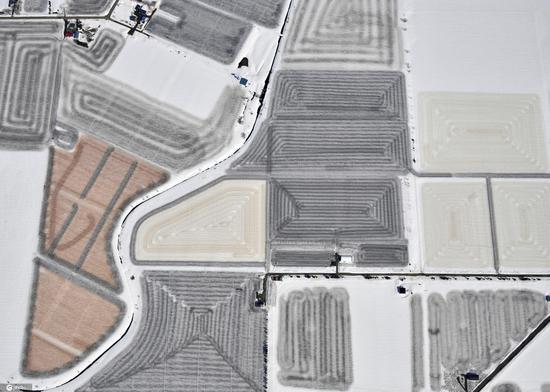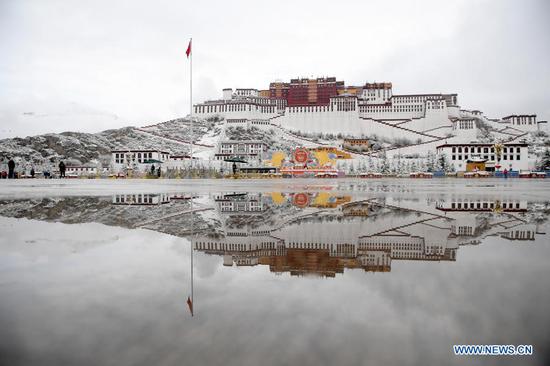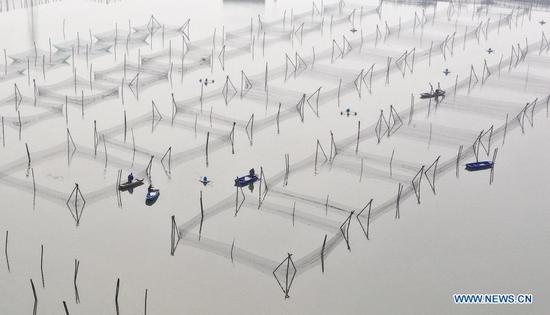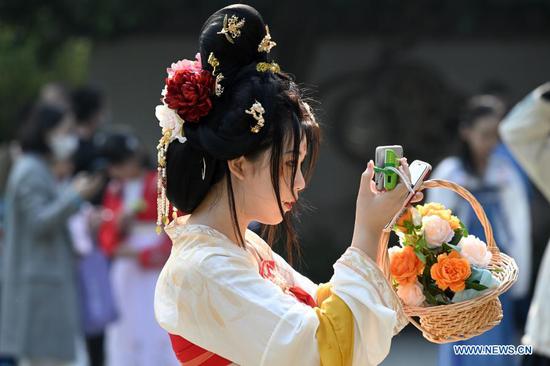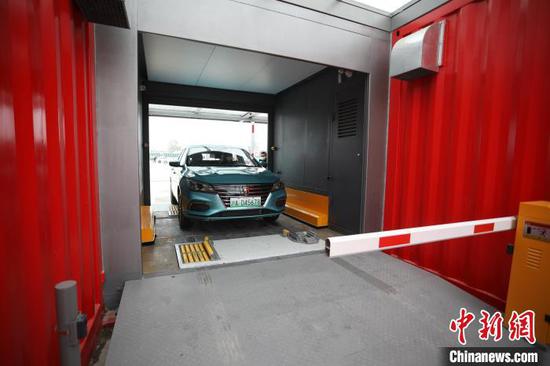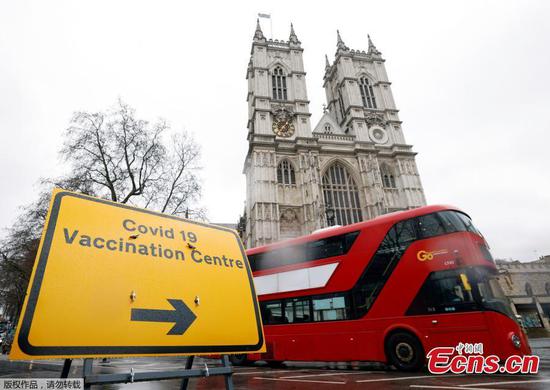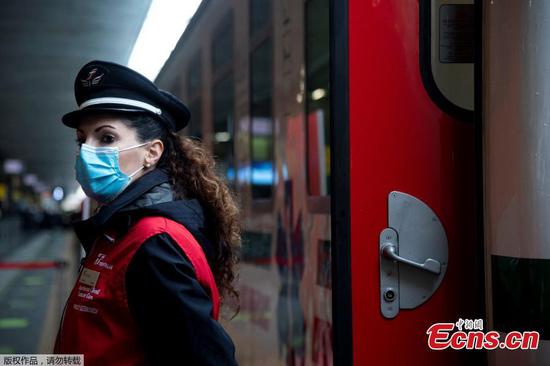
The national flags of China and the United States. (Photo/Xinhua)
A Chinese envoy on Wednesday expressed hope that the U.S. will remove "unreasonable restrictions on bilateral cooperation" as the two nations entered a new chapter of diplomatic relations.
"We hope that the U.S. side will remove unreasonable restrictions on bilateral cooperation as early as possible and not create new obstacles," said Zhang Ping, China's consul general in Los Angeles.
Speaking at a webinar Wednesday titled "A New Year, A New Vision: China &U.S. Relations" organized by San Diego State University, Zhang noted that 2020 was the most challenging year for the bilateral relationship during which a "political virus" eroded the hard-won achievement of China-U.S. relations.
"We hope the relationship could be repaired and improved and go back to a predictable and constructive track of development, and the two countries could build a model of interaction that focuses on peaceful existence and win-win cooperation. This is also the expectation of all other countries in the world," Zhang said.
The inauguration of the Biden administration brought the relationship to a new crossroad, with new opportunities and challenges, Zhang told the 200 or so attendees made up mostly of students and faculty members.
Moving the China-U.S. relationship back on the right track requires both sides to move in the same direction, to display courage, demonstrate foresight and stay on the right side of history to make the right decisions, he said.
The previous U.S. administration has pursued "misguided" policies toward China by seeing the nation as a major strategic competitor or even an adversary, Zhang said. China has stuck to the path of peaceful development and has no intention of challenging or replacing the U.S..
China's U.S. policy is stable and consistent. It is prepared to work with the U.S. to move the relationship forward along the track of no conflict, no confrontation, mutual respect and win-win cooperation, the envoy said.
Zhang recognized the existence of competition between the U.S. and China, but he pointed out that the two nations need do not be adversaries. Instead, they should strive to be partners, he said.
"The competition between China and the U.S. should be like competing with each other for excellence in a racing field, not beating each other in a wrestling arena," he said.
"The two sides should advocate healthy competition on a fair and just basis for the purpose of self-improvement and mutual enhancement, rather than finger-pointing and zero-sum competition," the envoy added.
Zhang reiterated that China and the U.S. share many common interests and could cooperate on a wide range of potential areas.
For example, it is estimated that China will import as much as $22 trillion in goods from foreign countries in the next 10 years. That will open up market opportunities to other countries and inject momentum into the world economy, he said. Zhang urged both sides to take advantage of those opportunities to expand practical cooperation.
The trade relationship is very important to both countries. According to Zhang, even during the pandemic, the bilateral trade volume between the two countries grew by more than 8 percent to over $580 billion. China's imports from the U.S. also reached $234 billion, an almost 10 percent increase.
To facilitate bilateral cooperation, the envoy emphasized the importance of avoiding the "national security" concept and to prevent political manipulation, stigmatization and demonization.
Finally, Zhang stressed the need to strengthen subnational cooperation and people-to-people exchanges, which have been key components of U.S.-China relations.
Southern California has long enjoyed close ties with China, which helped to bring tangible benefits to people of both countries, he said.
Before the pandemic hit, there were nearly 100 flights between Chinese cities and Los Angeles every week. At its peak, the number of Chinese tourists visiting Los Angeles reached more than 1 million every year. There were also as many as 40,000 Chinese students studying in Southern California.
In 2019, China was the largest trading partner of California, and most of the investment from Chinese companies has flowed to the Golden State.
He noted that 2021 marks the 50th anniversary of ping-pong diplomacy and former U.S. secretary of state Henry Kissinger's first visit to China.
"We have every reason to believe no matter what challenges the relationship might encounter, so long as we have the support of our two people, the China-U.S. relationship will have a bright future," Zhang said.











